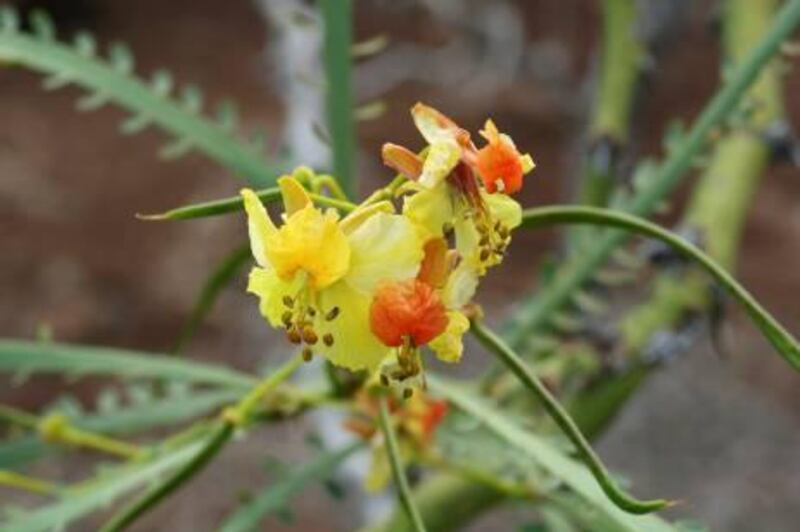Parkinsonia aculeata, Mexican palo verde, parkinsonia The obvious and various charms of Parkinsonia make it a seductive choice for the unwitting gardener working in an arid climate. It is drought- and salt-tolerant, has minimal irrigation requirements, grows happily in poor soils, and has distinctive, architectural foliage and attractive, fragrant, bright yellow flowers.
Historically, these qualities have made it a favourite with horticulturists, farmers and designers. As a result, large-scale propagation allowed Parkinsonia to spread from its native home in Central and South America across the globe. In many countries, however, the plant is now considered a dangerous pest and a threat. It propagates so freely from seed that it can have negative economic and environmental impacts.
In Australia, Parkinsonia is labelled as a "weed of national importance" and is controlled and monitored by a National Prickle Bush Co-ordinator. Despite this unfortunate nomenclature, the threat is real. As Parkinsonia spreads it steadily replaces native species and degrades habitat. Wetlands are particularly vulnerable because Parkinsonia can dam watercourses, cause erosion and even lower water tables.
So gardeners beware. If you see Parkinsonia for sale and it looks attractive, think again and plant something else.





